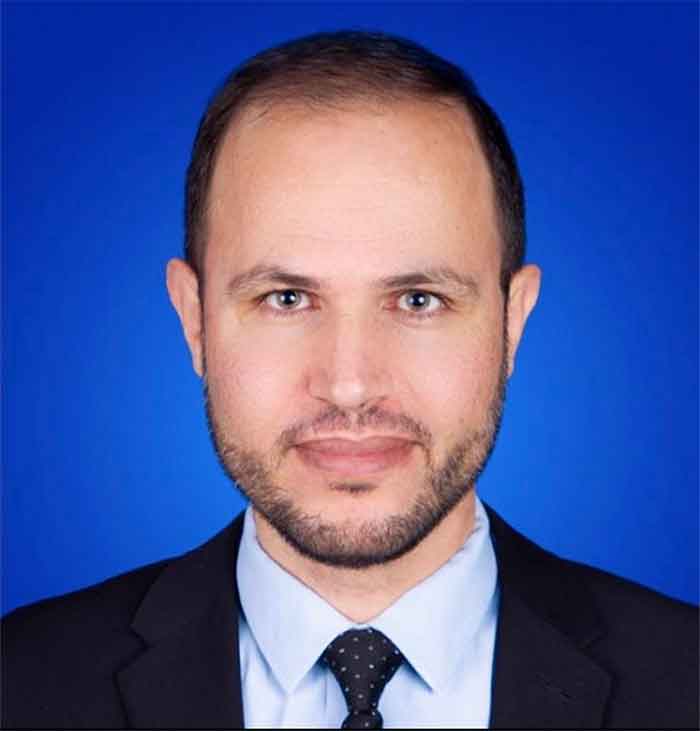
“It has often been said that the only thing that could unite mankind was a threat from space.”
I read this in Arthur C Clarke’s novel, 2061, Odyssey Three. The threat in Clarke’s science fiction was a second star — which mankind renamed Lucifer but was actually Jupiter set ablaze by superior space engineering by an intelligent species far more evolved than Homo Sapiens. The interesting thing here was the statement he made that “mankind could unite”. Arthur C Clarke wrote this novel in 1987 with perhaps a positive hope for the future of our race. At that point, global warming and climate change were not as big a threat as they are today and COVID-19 had not infringed to decimate the human race. I do not know if these issues can be regarded as a threat from space, Nature, Universe or man’s own unwitting movement towards the destruction of his species and his home planet. I have read that the absorption of solar radiation increases as the white ice sheets thaw to give way to dark waters that trap solar heat and hasten the pace of cyclic melting and global warming.
While climate change and the corona virus have failed to unify us till now, voices are being raised about economic downturns and stock markets. Weapon trade and skirmishes over borders have not halted. Economic activity is said to have been slowed down by lockdowns, an attempt to combat the spread of the virus. I wonder if the world of finance can exist without man. Who created these concepts of economy and money? Can they exist without man?
These questions haunt me, especially, every time I hear people give voice to their yearnings to go back to the life they had before the advent of the pandemic. I cannot say I do not miss my old life. I do. The freedom to move around, the freedom to talk to anyone and most of all the freedom to travel to any place in the world if one has the financial means — are things I miss very much. Sometimes I wonder, is the pandemic a warning for us to mend our ways, a warning from a superior intelligence or maybe just Nature and Earth? An airplane guzzles lot of fuel — petroleum (kerosene) based — to ferry us around. Is it all right to spend this much fossil fuel on a regular basis to hop around the world? I do not know. But it does make me question myself. Is it all right to fly off for a holiday at the drop of a hat? I live in a little island. Right now, that seems to be the only sane place to be in the world to me. We have had only 28 COVID deaths here in Singapore though the total number of cases near 60,000. The government is building dykes to prevent losing our homes to rising water levels as a result of climate change. Things seem to work. I feel fortunate to be here during this crisis.
However, when I look out through the window of my television and internet, I find a world torn in despair. A second wave of COVID, world leadership that is unable to manage the situation and some of it, unable to fathom both the seriousness of the pandemic and climate change. They are still finding reasons to draw borders and talk of economy as it was, instead of thinking of alternative lifestyles that will be in harmony with Nature and yet suit mankind. Twenty first century guru, Yuval Noah Harari, has rightly pointed out in a recent interview with British actor, comedian and activist, Russell Brand, that global leadership is not envisioning a future that factors in climate change and COVID but wallowing in the past. Though Arthur C Clarke does not factor in climate change or the pandemic, he does project a future. A future where a united world had colonies in space stations. Clarke writes: “The dismantling of the vast and wholly parasitic armaments industry had given an unprecedented — sometimes, indeed, unhealthy — boost to the world economy. No longer were vital raw materials and brilliant engineering talents swallowed up in a virtual black hole — or, even worse, turned to destruction. Instead, they could be used to repair the ravages and neglect of centuries, by rebuilding the world.”
In his projection, the arms race has halted. And China, USA and USSR are working in harmony. There is some amount of global governance. The world seems to be a more upbeat place. In the prequel to this book, 2010, OdysseyTwo (1982), where the countries have lessons in rising above politics and learning to survive together, you have a fleeting mention of ‘ahimsa’ — the Gandhian concept. An Indian robotics specialist practices it on an autonomous robot which turned rogue and killed its human counterparts in the earliest and most popular, 2001 Space Odyssey (1968), made into a film by Stanley Kubrik, a movie that projected a human colony on moon. When ‘ahimsa’, or non-violence, is practised (by honestly explaining the crisis to the machine) as opposed to violence (pulling the plug out on the robot and technically killing it), the robot complies and the expedition returns safely, in a way reviving Gandhian lore and Gandhi’s philosophy coming to the rescue of science. The humanitarian is woven into the scientific lore.
In Gandhi’s own country, they recently celebrated his one hundred and fifty-first birth anniversary. One would hope, it would serve as a reminder of his values and his principles. Here was a man who believed that developing each sector of a region mattered. He has clearly said in his autobiography (published as a serial in a magazine, 1925-29), Experiments with Truth: “As I gained more experience of Bihar, I became convinced that work of a permanent nature was impossible without proper village education.” That was his solution to growing as a nation — not just freedom from colonialism. He actually lived among the people he served and tried to be a part of the community through his actions, while enforcing his own standards of hygiene and cleanliness on his surroundings.
Though India gained freedom from colonials officially, did it actually grow out of colonial administration? When the British Civil Services were copied, maybe the administrators should have given it a Gandhian touch — even the colonial rulers listened to Bapu. Along with horse riding, the Indian Administrative Services officers should have been trained to open schools; to organise potable water, electricity, roads, food; to teach cleanliness, toilet and kitchen both; to build bathrooms and educate about their maintenance and usage; to get rid of blind beliefs and treat the residents like their own and not as their subjects. And perhaps, they should have been quartered among the people in villages and small tehsils, not in colonial mansions made for the British ruling class. That is pretty much what Gandhi might have done had he continued to live for longer.
To be given the self-respect to work for a living, earn one’s bread, is more important than giving out doles of social security. One has to strike the right balance and generate more jobs, as did Nawab Asaf-ud-Daulah in Lucknow when he built the Bada Imambara with its labyrinth of tunnels called Bhool Bhulaiya. The elites in 1784 were commissioned by the Nawab to break the walls built by the workers so that he could continue generating income for all through work, and not charity, through a terrible famine. This went on for eleven years — for as long as the famine lasted. That was long before Gandhi. But, Bapu also said it in black and white in his autobiography: “The grinding poverty and starvation with which our country is afflicted is such that it drives more and more men every year into the ranks of beggars, whose desperate struggle for bread renders them insensible to all feelings of decency and self-respect. And our philanthropist, instead of providing work for them and insisting on their working for bread, give them alms.”
Though Gandhi has been a favourite with many and influenced greats like Martin Luther King Jr, Nelson Mandela and more, is his own country impacted by his teachings beyond the currency notes which bear his imprint and the naming of many roads and parks after him?
Reading Arthur C Clarke always cheers me up because in his books I get a sense of hope, which dwindles when one wanders into the realm of Facebook and social media. I get my thoughts back in place. I wonder how Clarke made himself famous — without the aid of social media. As did Gandhi. Their actions, their writing made them stand out. Gandhi did not get the Nobel peace prize, though he was nominated five times for it. Did Gandhi ever talk of awards or aspire for one? While modern day politicians, twitter and try to reach masses with social media, they have not yet been able to elucidate what their ideology is or do they even have one? Transcending hate, hate politics and taking ownership is something that one could see Gandhi do. In his autobiography, he says: “‘Hate the sin not the sinner’ is it precept which, though easy enough to understand, is rarely practised, and that is why the poison of hatred spreads in the world.”
Statistics worldwide would show how mankind has progressed economically. We are living in a world which connects and gives comfort to a point that would be imaginable only in science fiction one century ago. We have technology, food, education and more people out of poverty than hundred years ago. Intellectuals like Abhijit Banerjee are actually addressing issues like solving world hunger. In the larger scale of things, we are improving. But are we growing as human beings, evolving to move further in our evolution as a race? Perhaps, we should be a realist like Gandhi. He states: “It is idle to adjudicate upon the right and wrong of incidents that have already happened. It is useful to understand them and, if possible, to learn a lesson from them for the future.” And learning for the future will only help us have a better one.
I am not a Gandhian, but I know what he said makes sense. He was a man who grew to greatness because of his ideology which embraced mankind with love and a quest for the spiritual. I am not asking anyone to adopt his philosophy but merely contending that his ideas might guide us towards a better world. A world which we can look forward to. Let us find that magic that will make us worthy enough to live in harmony with Nature and the great technological leaps mankind is able to make towards an unexplored beautiful future…
Mitali Chakravarty is a writer and the founding editor of Borderless Journal.
SIGN UP FOR COUNTERCURRENTS DAILY NEWSLETTER

















































